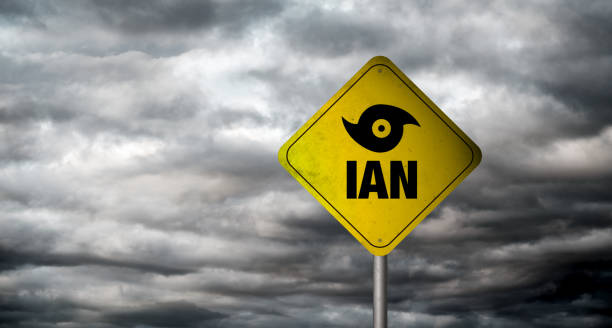Why will insurance companies underpay hurricane Ian victims? With Hurricane Ian ripping through Florida, there are huge consequences for real estate. One week after Hurricane Ian struck, tens of thousands of Floridians have property damage and are turning to their insurance companies hoping they’ll pay up.
Hurricane Ian has left a trail of destruction in its wake after it made its way across Florida. In the aftermath, there’s been a lot of talk about how insurance companies are unfair to hurricane victims. We’ll explore what’s going on and why this is happening in this article!
What is Hurricane Insurance?
Hurricane insurance is a type of insurance that protects homeowners and businesses from damages caused by hurricanes. FEMA will only cover damage to the first 3 feet of your property if you have a total loss due to Hurricane Ian. After that, you’ll need to seek coverage from your hurricane insurance.
What is Concurrent Causation?
Concurrent causation is a mechanism used in insurance claims to handle losses that arise from more than one cause. For instance, Hurricane Ian caused both wind damage and storm surge. Depending on the circumstances and the policy, damages from both causes may be covered even if only one has coverage under the policy.
However, your insurance company may argue against concurrent causation to deflect its liability. For example, your insurance provider might argue that flooding caused by storm surge would have occurred regardless of any wind damage that made it easier for flood waters to enter your home. If you don’t have flood insurance, the water damage and resulting mold might not be covered.
What are the Impacts of Hurricane Ian?
In Florida, standard homeowners insurance policies do not cover flood damage, which means residents must purchase flood coverage separately. Instead, most flood protection comes from the Federal Emergency Management Agency’s National Flood Insurance Program (NFIP).
Nine counties in Florida were designated disaster regions by President Joe Biden, making the citizens eligible for government assistance. Politico reports that only 29% of the 1.8 million households in those nine counties have access to federal flood insurance under the NFIP. This means that, without the purchase of private flood insurance, the remaining 1.3 million families might not receive any assistance.
Hardee County, which has one of the lowest income levels in Florida, has only 100 households with federal flood insurance. That’s a coverage rate of 1.3% out of 8,000 households. If these homeowners did not purchase private insurance, they could be out of luck.
Property prices have risen almost 135% in Florida over the past ten years. If insurance companies underpay property owners, they are unlikely to be able to purchase another property in the state, and many may be forced to sell their land to developers.
How Does it Affect Airbnb Rental Income?
In light of recent rulings, the following provision applies to homeowners who have carried only a Citizens’ insurance policy. As a result, citizens are now immune from bad faith claims for losses like the loss of Airbnb rentals, meaning they won’t have to file for consequential damages like that. This ruling comes after several homeowners took their Citizen’s policies to court, alleging they were denied coverage because of the policy exclusion for vacation rentals.
While this ruling is good news for homeowners, it is also important to note that 22% of all U.S. vacation rentals are located in Florida. As a result, many families count on Airbnb income to make ends meet during busy summer.
Should guests be refunded or not? It generally comes down to whether they took an insurance policy or not. This will be a big test for Airbnb, as their new Airbnb’s new travel insurance does not mention hurricanes or weather events.
Why Will Insurance Companies Underpay Hurricane Ian Victims?
According to NOAA records, with hurricane season now in full force, it’s worth noting that the Insurance Information Institute estimates that Hurricane Ian has caused at least $30 billion in damage. This would make its overall price tag one of the 12 most costly disasters since 1980. In addition, the hurricane hit Florida as the state faces an insurance crisis, where policyholders pay the nation’s highest property insurance rates.
Furthermore, Nancy Watkins from Milliman actuarial consultants says, “Florida is already having a problem with the availability of insurance. It has a problem with affordability and reliability when insurance companies are going insolvent.” Thus, all three pillars of a sustainable market are in danger.
Many insurers are on the financial edge. Ian-related claims could push them over the edge and into bankruptcy, making it even more difficult for homeowners to buy property coverage. According to the insurance institute, the average property insurance rate is nearly $4,500 — about triple the U.S. average of $1,544.
The industry dealt with billions in losses, rampant litigation, and fraud even before Hurricane Ian. Just this year, six insurers went bankrupt!
With a denial rate of 30%, insurance companies in Florida rejected roughly 1 million claims filed after Hurricane Irma swept through the state. This is despite Citizens having $13.6 billion in reserve and projecting paying 225,000 claims from Hurricane Ian, worth $3.8 billion.
Get Started Today and Let Our Professionals Help You Through Your Claim
Bring in experts like RRBH Law to fight on your behalf. We’ll give you a realistic idea of what you can expect and how long of a fight you’ll be in for. Whatever you do, don’t sign anything from your insurance company until you speak with an attorney! Contact us at 305-800-4663.

